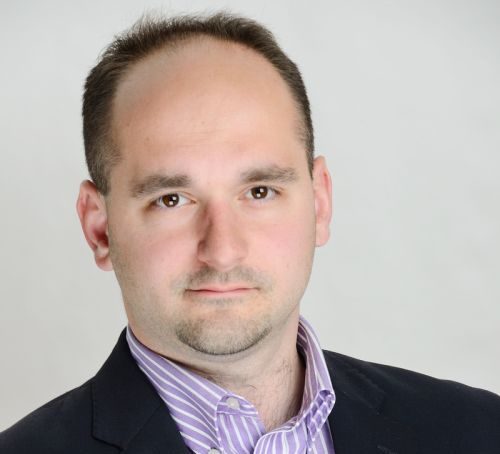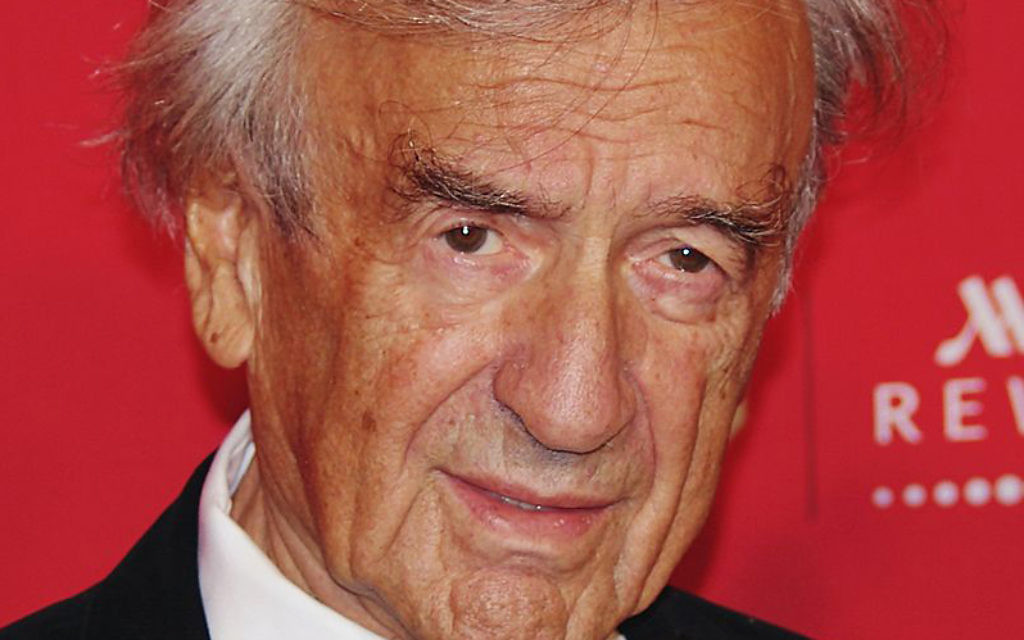OPINION: How Holocaust survivors supported Bosnia
As the world prepares to mark 25 years since Srebrenica, Sarajevo professor Hamza Karčić recalls how Elie Wiesel, Tom Lantos, Henry Siegman and Simon Wiesenthal raised awareness
As he delivered his remarks at the Holocaust Memorial Museum dedication in Washington, DC on 22 April 1993, Elie Wiesel turned to Bill Clinton: “Mr. President, I cannot not tell you something. I have been in the former Yugoslavia last fall. I cannot sleep since… We must do something to stop the bloodshed in that country.” The significance of the moment and Wiesel’s appeal cannot be overstated: a Holocaust survivor at the opening of a Holocaust museum in America’s capital appealed to the leader of the sole remaining superpower to stop a slaughter thousands of miles away.
Wiesel recounted in And the Sea Is Never Full: Memoirs, 1969- that he became involved in the Balkans in July 1992. At a meeting in London, president of the Federal Republic of Yugoslavia Dobrica Cosic had Radovan Karadzic commit in Wiesel’s presence to shut down the camps in Bosnian Serb-controlled territory. Wiesel visited the Manjaca camp in northwest Bosnia and witnessed the inhumane treatment of Muslims and Croats at the hands of Bosnian Serbs. His visit to the besieged Bosnian capital led him to observe that Sarajevo had become one of the “most devastated cities in the world.” In Belgrade, Wiesel again met with Cosic and tried to “convince him to end the policy of terror against the Bosnians.” The pledge by Karadzic and Dobrica Cosic to close the camps was not honored leading Wiesel to conclude a piece in The New York Times in February 1993 with “…as far as Serbian authorities are concerned, I feel betrayed.” His appeal to President Clinton came on the heels of his trip to Bosnia and the broken promises.
In fact, Weisel’s effort mirrored that of other Holocaust survivors who supported Bosnia in the early 1990s. On Capitol Hill, Representative Tom Lantos was very perceptive as to what was happening in Bosnia. As early as April 1992, Lantos urged fellow congressmen to support his legislation to impose sanctions on Serbia until that country ceased military operations in Yugoslav successor states. The Budapest-born Lantos was the only Holocaust survivor elected to US Congress and his support for Bosnia carried special heft. Over the course of the war, the California Democrat co-sponsored legislation supportive of Bosnia including efforts to lift the UN-imposed arms embargo.
Get The Jewish News Daily Edition by email and never miss our top stories Free Sign Up

While Wiesel traveled to the Balkans and Rep. Lantos provided support on Capitol Hill, Henry Siegman penned powerful op-eds supportive of Bosnian Muslims. The then-executive director of the American Jewish Congress deplored “the cynical and total abandonment of Bosnia’s Muslims by the West to certain slaughter or expulsion” in July 1993 in the International Herald Tribune. The Geneva peace talks in 1993 were “…a ruse….to extinguish Bosnia as a state.” In January 1994, Siegman called for airstrikes on Serb positions and a lifting of the arms embargo on Bosnia. He harshly criticized the “moral equivalence” that Western governments used to “justify inaction.” A few months later, in May 1994, Siegman was scathing towards the Clinton Administration for “the bankruptcy of … Bosnian policy.” Seigman urged the US and its allies to “undertake a massive supplying of arms to Bosnia’s Muslims.”
Across the Atlantic, Simon Wiesenthal’s voice was heard. Israeli historian Tom Segev in Simon Wiesenthal: The Life and Legends writes that following the dissolution of Yugoslavia “Wiesenthal stood up for the Muslims of Bosnia.” In July 1993, Wiesenthal appealed to President Clinton to airdrop humanitarian aid to Sarajevo. Several days after the fall of Srebrenica, Wiesenthal wrote to President Clinton urging the US to prosecute Bosnian Serb war leaders. In the letter dated 19 July 1995, Wiesenthal wrote that in Bosnia “…with all their crimes against humanity, the ethnic cleansing, the slaughtering of civilians regardless of age, the rape of Muslim women – while they do not constitute a Holocaust, repeat many of its horrible details.” In this letter quoted by Segev and available at the William J. Clinton Library and Museum, the famed Nazi hunter wrote that Radovan Karadzic and Ratko Mladic were the culprits.
As postwar Bosnia headed for its elections the following year, a major concern was the pervasive influence of war crimes suspects. Segev quotes from a letter published in The New York Times in early July 1996 in which Wiesenthal and other genocide scholars urged Clinton to order American forces in Bosnia to arrest Karadzic and Mladic.
As the 25th anniversary of Srebrenica approaches, it is important to remember the voices of conscience during the genocide at the close of the 20th century in Europe. Elie Wiesel, Tom Lantos, Henry Seigman and Simon Wiesenthal were clear-eyed as to what was unfolding. When European mediators pursued latter-day appeasement and UN peacekeepers vacillated between being bystanders and accomplices, Holocaust survivors spoke up for and supported Bosnia.

Thank you for helping to make Jewish News the leading source of news and opinion for the UK Jewish community. Today we're asking for your invaluable help to continue putting our community first in everything we do.
For as little as £5 a month you can help sustain the vital work we do in celebrating and standing up for Jewish life in Britain.
Jewish News holds our community together and keeps us connected. Like a synagogue, it’s where people turn to feel part of something bigger. It also proudly shows the rest of Britain the vibrancy and rich culture of modern Jewish life.
You can make a quick and easy one-off or monthly contribution of £5, £10, £20 or any other sum you’re comfortable with.
100% of your donation will help us continue celebrating our community, in all its dynamic diversity...
Engaging
Being a community platform means so much more than producing a newspaper and website. One of our proudest roles is media partnering with our invaluable charities to amplify the outstanding work they do to help us all.
Celebrating
There’s no shortage of oys in the world but Jewish News takes every opportunity to celebrate the joys too, through projects like Night of Heroes, 40 Under 40 and other compelling countdowns that make the community kvell with pride.
Pioneering
In the first collaboration between media outlets from different faiths, Jewish News worked with British Muslim TV and Church Times to produce a list of young activists leading the way on interfaith understanding.
Campaigning
Royal Mail issued a stamp honouring Holocaust hero Sir Nicholas Winton after a Jewish News campaign attracted more than 100,000 backers. Jewish Newsalso produces special editions of the paper highlighting pressing issues including mental health and Holocaust remembrance.
Easy access
In an age when news is readily accessible, Jewish News provides high-quality content free online and offline, removing any financial barriers to connecting people.
Voice of our community to wider society
The Jewish News team regularly appears on TV, radio and on the pages of the national press to comment on stories about the Jewish community. Easy access to the paper on the streets of London also means Jewish News provides an invaluable window into the community for the country at large.
We hope you agree all this is worth preserving.
-
By Laurent Vaughan - Senior Associate (Bishop & Sewell Solicitors)
-
By Laurent Vaughan - Senior Associate (Bishop & Sewell Solicitors)
-
By Laurent Vaughan - Senior Associate (Bishop & Sewell Solicitors)
-
By Laurent Vaughan - Senior Associate (Bishop & Sewell Solicitors)






















